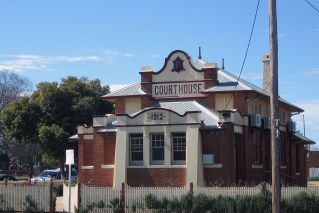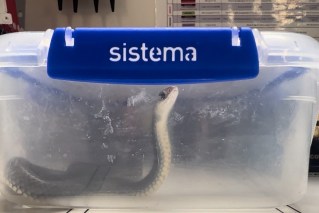Odds-on, evens-off: Coronavirus exit plan to be safe in numbers


Researchers suggest the odds and evens approach could be Australia's ticket to ease coronavirus restrictions. Picture: TND
Australia implemented the house numbers strategy to ration petrol and water during World War II.
China used a similar plan with number plates to reduce air pollution before the 2008 Olympic Games in Beijing.
And now researchers are recommending it again.
This time as a safe and quick way for Australia to exit coronavirus restrictions and begin to return life to normal.
The proposal is simple. On one day, people living in odd-numbered houses are allowed to socialise or travel for work, and the next day, those living in even-numbered houses have their turn. And repeat.
As companies grapple with the idea of going back to work safely, the research paper from the Queensland University of Technology suggests this ‘odds-and-evens’ approach could keep us all safe.
“Governments in Australia and elsewhere are seeking to balance competing priorities,” said Professor Adrian Barnett, a statistician with QUT’s School of Public Health and Social Work.
“A major problem with relaxing restrictions too quickly is the limited evidence on how this will affect transmission of the virus and no one wants to see another wave of infection and deaths which would lead to a return to lockdown.
“We propose an interim solution in which allowing people to return to a less-restricted life should be based on odd or even house numbers.
“For example, people in odd-numbered houses have relaxed restrictions on odd days in the month (first, third, etc) and people in even-number houses on even days (second, fourth, etc).
“This halves the population mixing, which reduces the risk of a new wave occurring, and it creates useful data for judging whether restrictions can be further relaxed or should be tightened.”
Countries across the world have picked up on this approach, with Colombia implementing it by gender, allowing women out on even-numbered days and men on odd ones.
Dog walkers are allowed out for 20 minutes on any day.
Peru also adopted the gendered measure but scrapped it after just two weeks following criticism that it discriminated against women and transgender people.
In Bolivia, Honduras and Panama they are allowing citizens out on different days, based on national ID numbers.

Australians could work one week from the office, and the other from home. Photo: QUT
And Costa Rica has restrictions based on car number plates.
Even before the coronavirus crisis, many major cities across the world including Beijing, Rome, Paris and Mexico City implemented a similar system to deal with traffic congestion and pollution.
Road space rationing was implemented in Beijing before the 2008 Olympics and a simplified version of it still exists.
This odds-and-evens approach to reopening Australia would make it easy to track the virus before it got out of hand, Professor Barnett said.
“It should also make it easier to spot a new wave of infection earlier because there would be an alternating pattern in house numbers in people reporting symptoms,” he said.
“There will also be challenges in enforcing a policy based on house number and there will always be people who choose not to obey the rules.
“Despite the potential problems, this approach partially restarts the economy with lower risk and provides valuable experimental data, so it has multiple benefits compared with relaxing restrictions en masse.”








